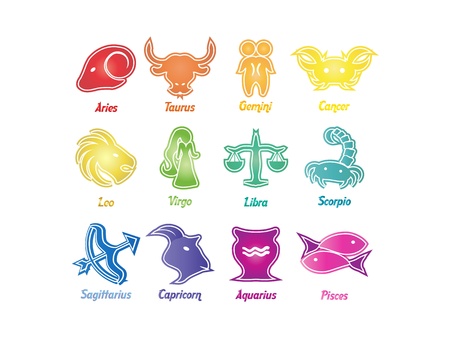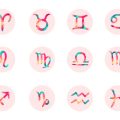1. Introduction: Astrology’s Lure in British Letters
Throughout the annals of British literature, astrology has held a peculiar allure, captivating both writers and their audiences with its promise to unveil the mysteries of human character and destiny. Rooted deeply within the cultural fabric of Britain, the fascination with celestial patterns and planetary influence predates even Shakespeare, threading its way through medieval manuscripts and into the heart of modern storytelling. Far from mere superstition, astrology became a lens through which writers could interrogate fate, free will, and the intricate workings of personality. In drawing upon astrological motifs, British authors not only enriched their narratives with symbolic resonance but also mirrored society’s own enduring curiosity about the heavens. This interplay between cosmic belief and literary craft set the stage for a tradition where horoscopes, star signs, and planetary conjunctions shaped the destinies of characters as vividly as any earthly force.
Astrological Archetypes: Mapping Character through the Stars
British literature, with its intricate interplay of fate and personality, has long been enchanted by the evocative language of astrology. Writers from Chaucer to Shakespeare, and on to modern novelists like Virginia Woolf and Zadie Smith, have harnessed the astrological archetypes—those familiar signs and their symbolic meanings—to build characters whose destinies feel both preordained and psychologically rich. By weaving planetary influences and zodiacal traits into the fabric of their narratives, British authors have crafted figures who resonate with cosmic significance, embodying virtues and flaws dictated by the heavens.
Central to this literary device is the mapping of character traits onto the twelve signs of the zodiac. These signs, each associated with elemental qualities—fire, earth, air, water—offer a shorthand for temperamental tendencies, inner conflicts, and potential growth. Consider how a character cast in the mould of Leo might radiate regal confidence but struggle with pride, while a Piscean protagonist could be intuitive yet prone to escapism. The table below illustrates common associations employed by British writers:
| Zodiac Sign | Key Traits | Literary Examples |
|---|---|---|
| Aries | Bold, impulsive, pioneering | Elizabeth Bennet (Pride and Prejudice) |
| Cancer | Sensitive, nurturing, nostalgic | Mrs. Ramsay (To the Lighthouse) |
| Virgo | Analytical, precise, reserved | Miss Marple (Agatha Christie’s novels) |
| Aquarius | Innovative, eccentric, detached | Prospero (The Tempest) |
This astrological framework does not merely serve as ornamentation; it provides a logical scaffolding upon which British writers can examine questions of destiny and free will. Astrological archetypes allow for subtle commentary on societal expectations—where fate collides with class or gender—and for nuanced explorations of human psychology. As such, astrology becomes both a tool for character construction and a lens through which readers can interrogate the mysteries of human motivation and fate.

3. Fate, Free Will, and the British Temperament
Astrology’s enduring presence in British literature provides a unique lens through which to view national debates about destiny and autonomy. The British temperament—often characterised by reserve, pragmatism, and the proverbial ‘stiff upper lip’—finds itself in perennial conversation with questions of fate and individual agency. Writers have long grappled with whether our lives are mapped out by cosmic forces or shaped by personal resolve.
Throughout the works of Shakespeare, for instance, celestial imagery often signals moments of existential crisis: “The fault, dear Brutus, is not in our stars, but in ourselves,” Cassius famously declares. This line encapsulates the tension between external determinism and internal willpower—a dialectic that has echoed through centuries of British prose and poetry. Later writers such as Thomas Hardy would lean into fatalism, using astrology to evoke a universe indifferent to human striving, yet always leaving room for the tragic dignity of those who persevere.
The British literary tradition frequently positions astrology as both a metaphorical and literal force—a device through which characters confront uncertainty while maintaining composure. The ‘stiff upper lip’, emblematic of the national psyche, is often tested by astrological portents or predictions. Characters may consult horoscopes or observe planetary alignments, yet ultimately assert their autonomy through acts of quiet defiance or stoic acceptance.
This interplay between fate and free will is neither wholly cynical nor blindly optimistic; rather, it reflects a nuanced cultural negotiation. British writers use astrological motifs to question the limits of self-determination without descending into fatalistic despair. In doing so, they articulate a distinctly British response to life’s uncertainties: acknowledging the pull of destiny while asserting the primacy of character and choice.
4. From Blavatsky to Bloomsbury: Notable British Astrologers and Literary Circles
As the nineteenth century gave way to the twentieth, astrology found renewed vigour in Britain, not merely as an esoteric curiosity but as a catalyst within intellectual and literary circles. The Victorian era, with its taste for spiritualism and the occult, saw figures such as Helena Blavatsky—though Russian by birth, profoundly influential in British esoteric circles—laying the foundation for a metaphysical approach to both life and literature. Theosophy, championed by Blavatsky and her followers, brought Eastern philosophies and astrological symbolism into contact with British minds eager to pierce the veil of conventional reality.
Victorian Occultists and Literary Reception
It was in this climate that writers like Arthur Conan Doyle and W.B. Yeats engaged seriously with astrological thought. Doyle’s fascination with spiritualism extended to an interest in how planetary influences might reveal character traits or future paths—a notion he explored obliquely through his rational yet ever-curious detective, Sherlock Holmes. Yeats, a member of the Hermetic Order of the Golden Dawn, delved into astrology as both a personal practice and a poetic device, drawing connections between cosmic cycles and human fate.
The Modernist Turn: Astrology in the Bloomsbury Group
The early twentieth century ushered in modernist experimentation, as seen in the famed Bloomsbury Group—Virginia Woolf, Lytton Strachey, E.M. Forster, among others. Here, astrology shifted from occult speculation to psychological exploration. Woolf’s diaries attest to her interest in horoscopes; astrological motifs surface subtly in her fiction, suggesting an undercurrent of cosmic determinism running alongside her investigations into consciousness and identity.
Key Influencers and Their Contributions
| Figure/Group | Astrological Involvement | Literary Impact |
|---|---|---|
| Helena Blavatsky | Theosophical teachings; introduced Eastern astrology to Britain | Influenced occult themes in late Victorian literature |
| Arthur Conan Doyle | Spiritualist writings with astrological references | Shaped character construction via unseen forces |
| W.B. Yeats | Member of Golden Dawn; used astrology for poetic symbolism | Lyrical explorations of fate and destiny |
| Bloomsbury Group (e.g., Woolf) | Private interest in horoscopes; subtle literary allusions | Psychoanalytic reading of character influenced by cosmic cycles |
A Web of Influence: From Esotericism to Literary Experimentation
The confluence of these figures and movements fostered an environment where astrology could be wielded as both a metaphorical language and an analytical tool for probing character and destiny. Whether manifesting as explicit references or underlying structures within narrative forms, astrological thought became enmeshed in the evolving fabric of British literary imagination, setting the stage for new dialogues between fate, personality, and creative expression.
5. Astrology in Modern British Fiction and Drama
In the shifting landscape of contemporary British literature, astrology has acquired new roles—no longer confined to an antiquated curiosity or a tool for mystical fate-mapping. Today’s writers often wield astrological symbolism with a distinctly modern sensibility, using it to challenge established literary traditions, subvert cultural stereotypes, and satirise the peculiarities of British society. This approach reflects not only the changing attitudes towards belief systems but also an evolving sense of national identity.
Contemporary British novelists and playwrights frequently employ astrological references as instruments of irony or critique. For example, characters may be introduced with their star signs not to foreshadow destiny, but to reveal the superficiality of modern obsessions with personality tests and quick-fix solutions to existential uncertainty. In this context, astrology becomes a mirror held up to the audience—inviting reflection on the ways in which ancient frameworks are appropriated for self-understanding in an era marked by scepticism.
Astrology is also used to disrupt traditional character archetypes. Writers such as Zadie Smith and Ali Smith have created figures whose birth charts defy easy categorisation, suggesting that identity is far more nuanced than any zodiacal typology might imply. Here, horoscopic attributes are playfully undermined, pushing readers to reconsider the reductive nature of labels and classifications so prevalent in both fiction and daily life.
In drama, too, astrological motifs serve as vehicles for satire. Playwrights like Caryl Churchill and Mike Bartlett have inserted cosmic elements into their scripts to lampoon middle-class anxieties or mock the commodification of spiritual guidance in Britain’s consumer-driven culture. The resulting works challenge audiences to question whether reliance on stars—or any external system—truly brings insight, or merely masks deeper uncertainties lurking beneath polite conversation and societal norms.
This creative engagement with astrology signals a broader trend within British letters: a willingness to revisit inherited traditions not with reverence, but with wit and critical acumen. By reimagining astrology as a source of both humour and philosophical inquiry, contemporary writers invite us all to contemplate our place in the cosmos—not as subjects bound by fate, but as active participants in shaping character and destiny amid the ever-changing constellations of modern life.
6. Conclusion: Enduring Stars in the British Literary Cosmos
As we draw our exploration to a close, it becomes clear that astrology’s shimmering presence in British literature is no mere relic of bygone superstition, but rather a testament to its enduring narrative power and symbolic resonance. Across centuries, British writers have looked skyward—not only for inspiration, but also as a means to probe the intricate interplay between fate and free will, character and circumstance. The constellations that once guided sailors across tempestuous seas have likewise charted the emotional and psychological journeys of literary figures navigating the unpredictable tides of their own stories.
This persistent fascination with astrology reflects more than simple curiosity; it reveals an abiding desire among writers and readers alike to find meaning within chaos, order amidst uncertainty. In works ranging from Chaucer’s Canterbury Tales to Hilary Mantel’s historical novels, celestial motifs provide both a structural framework and a metaphysical mirror, allowing characters—and audiences—to contemplate the forces shaping their destinies. The language of signs and portents has proven remarkably flexible, capable of evoking both irony and earnestness, scepticism and wonder, thus mirroring the complex attitudes of British society itself toward questions of belief and rationality.
In today’s world, where scientific progress seems ever to encroach upon ancient mysteries, the astrological imagination remains surprisingly resilient. Contemporary British authors continue to employ cosmic symbolism—sometimes playfully, sometimes poignantly—to explore identity, agency, and existential longing. Whether invoked as metaphor or plot device, astrology endures because it speaks to something timeless in the human condition: our yearning to glimpse patterns in the stars that might illuminate the shadows within ourselves.
The legacy of astrology in British letters is therefore not merely ornamental; it is vital, alive, and continually evolving. It invites us to read not just with our eyes fixed on the printed page but with our imaginations attuned to the heavens above—a reminder that literature, like the night sky, offers infinite possibilities for interpretation. As long as there are stories to tell and stars to ponder, astrology will remain an integral part of Britain’s literary cosmos—a constellation whose allure shows no sign of waning.


